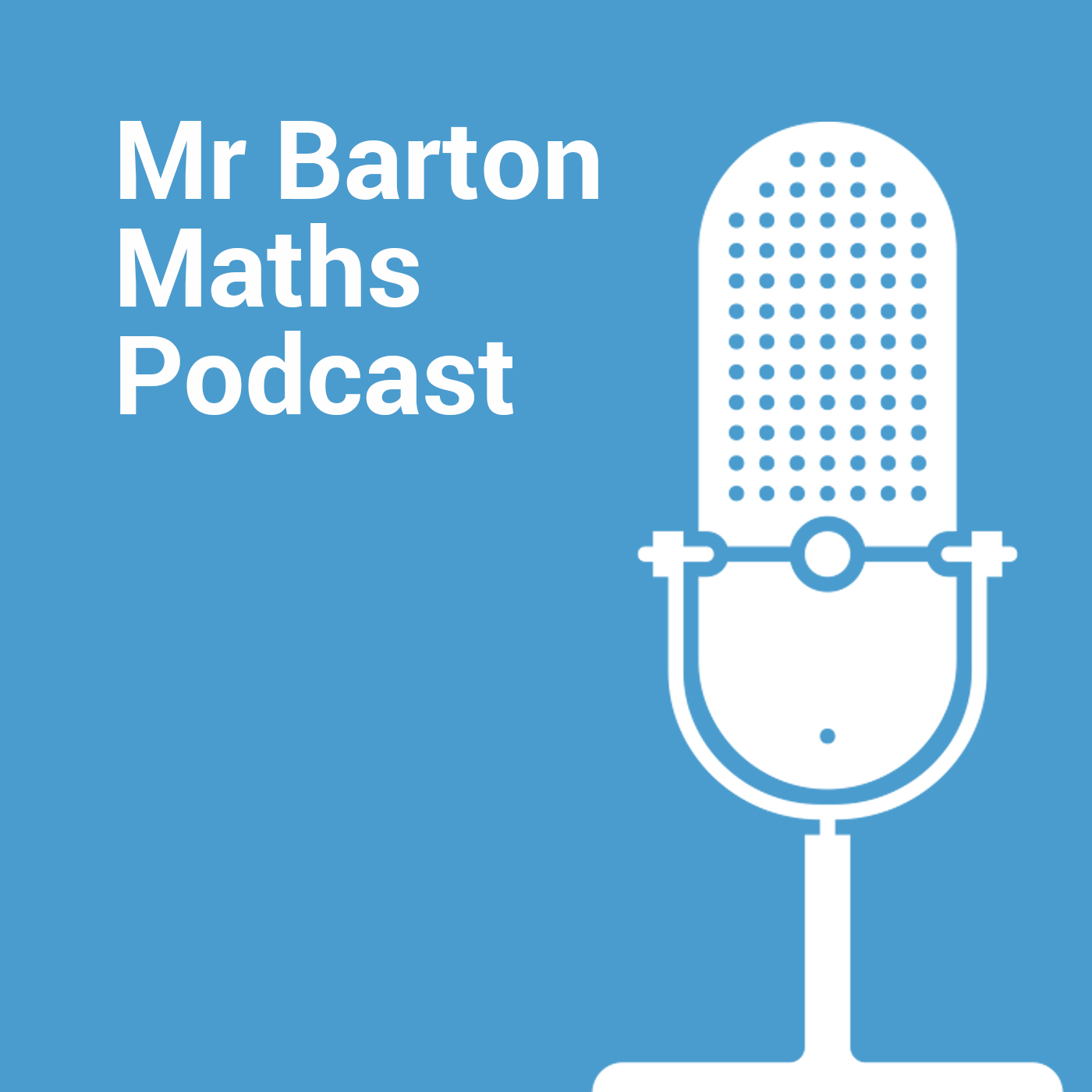

Mr Barton Maths Podcast
Craig Barton
Craig Barton interviews guests from the wonderful world of education about their approaches to teaching, educational research and more. All show notes, resources and videos here: https://www.mrbartonmaths.com/blog/
Episodes
Mentioned books

Jan 28, 2026 • 53min
#209 Research in Action 26: Linguistic influences on number processing with Silke Goebel
In this conversation, Silke Goebel, a professor at the University of York, discusses her research on number processing in children, the cognitive and cultural aspects of numerical cognition, and the influence of language on learning mathematics. She explores how numbers are represented in the brain, the concept of subitizing, and the challenges posed by different number systems across cultures. The discussion also touches on the impact of bilingualism and reading direction on numerical understanding, as well as practical takeaways for teachers and parents to support children's mathematical development. Access the show notes here: https://podcast.mrbartonmaths.com/209-research-in-action-26-linguistic-influences-on-number-processing-with-silke-goebel/

Nov 11, 2025 • 1h 29min
#208 Atomisation in Action – episode 4 (with Kris Boulton and Duncan Grantham)
Kris Boulton and maths teacher Duncan Grantham join me to discuss creating maths resources using AI. You can access the shownotes here: mrbartonmaths.com/blog/atomisation-in-action-4

7 snips
Sep 1, 2025 • 1h 58min
#207 Atomisation in Action – episode 3 (with Kris Boulton and Lee Wheeler)
Chris Boulton, an education consultant, and Lee Wheeler, a secondary maths teacher, dive into the practical applications of atomisation in the classroom. They discuss using atomisation to tackle multi-step exam questions, illustrating how small conceptual 'atoms' help students combine topics effectively. Lee shares insights from his GCSE results, while Chris emphasizes the importance of structured problem-solving tactics. They also explore handling prerequisite knowledge, the dynamics of mixed-class readiness, and setting high expectations for all students.

42 snips
Jul 29, 2025 • 1h 52min
#206 Mastering classroom management with Ollie Lovell and Mark Dowley
Ollie Lovell and Mark Dowley, co-authors of The Classroom Management Handbook, dive into key principles for effective classroom management. They emphasize mastering one's own behavior to positively influence students, treating behavior as a curriculum, and celebrating success as the ultimate motivator. The discussion includes practical scripts for teachers to implement these principles, highlighting the importance of emotional regulation and connection with students. Their insights offer valuable strategies for both new and experienced educators navigating classroom challenges.

15 snips
Jul 15, 2025 • 2h 46min
#205 Why CPD is broken and how to fix it with Adam Boxer
Adam Boxer, a dedicated science teacher and educational innovator, discusses the shortcomings of traditional CPD in schools. He critiques common models like one-off seminars and emphasizes the need for actionable, tailored professional development. Additionally, Boxer shares insights on innovative strategies, including the 'tick trick,' peer assessment, and the role of AI in enhancing teaching. The conversation also highlights the importance of community support among educators and encourages a shift towards more effective instructional coaching methods in classrooms.

15 snips
Jun 12, 2025 • 55min
#204 Developing a lesson structure – episode 5 (with Ollie Lovell)
Ollie Lovell, an education consultant and seasoned podcaster, joins for a deep dive into effective lesson structures. The duo explores the 'Do Now' segment, discussing strategies for assessing student understanding and managing teaching time. They highlight innovative methods for these activities, emphasizing the importance of scaffolding and responsive follow-up questions. Additionally, they share excitement about their upcoming tour in Australia and the intriguing role of AI in their planning. Packed with practical insights, this conversation is a must-listen for educators!

7 snips
Jun 4, 2025 • 1h 53min
#203 Atomisation in Action – episode 2 (with Kris Boulton and Lee Wheeler)
Kris Boulton, creator of Unstoppable Learning, and maths teacher Lee Wheeler dive into the world of Atomisation in education. They discuss how this innovative approach can both succeed and falter in diverse classroom settings. The duo highlights the intricate balance of catering to mixed-attainment classes and the importance of tailoring instruction for various learning levels. They also reflect on the challenges of teaching complex topics like geometry, emphasizing empathy and adaptability to enhance student engagement.

11 snips
May 27, 2025 • 1h 40min
#202 AI and Education – episode 3 (with Neil Almond)
Neil Almond, creator of the Teacher Prompts newsletter, discusses the cautious integration of AI in education. He reflects on Neil Postman's technology principles and their relevance today. Key topics include the challenges educators face in distinguishing student work from AI-generated content and the socio-economic implications of AI. Almond emphasizes the need for balanced teaching approaches that foster creativity while adapting to technological advancements, ensuring meaningful educational experiences for students.

10 snips
Apr 30, 2025 • 1h 45min
#201 Atomisation in Action – episode 1 (with Kris Boulton and Lee Wheeler)
Kris Boulton, a writer and educational consultant specializing in atomization, teams up with Lee Wheeler, a math teacher implementing these principles in his classroom. They delve into the transformative impact of breaking down complex mathematical concepts for better student understanding. Highlighting personal anecdotes, they discuss the significance of collaboration among educators and raising student expectations. The conversation also touches on the role of AI in education and strategies like retrieval practice to enhance comprehension and foster a supportive learning environment.

24 snips
Apr 23, 2025 • 1h 56min
#200 AI and Education – episode 2 (with James Radburn)
This is the second instalment in a series of episodes examining the role of AI in education. On this episode, I am joined by James Radburn. As you will hear, James has devoted considerable time to considering the positive benefits and pitfalls of AI in education. Today, after James shares three practical use cases of AI that all listeners can use, we dive into the tricky areas of AI literacy for both teachers and students. What is the minimum that all teachers and students need to know about AI, and what are the ethical implications? You can access the shownotes here: mrbartonmaths.com/blog/ai-in-education-2


